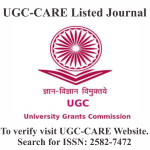THE ROLE OF ECOTOURISM IN PROMOTING SUSTAINABLE DEVELOPMENT
DOI:
https://doi.org/10.29121/shodhkosh.v5.i6.2024.4169Keywords:
Role, Ecotourism, Sustainable DevelopmentAbstract [English]
Ecotourism plays a vital role in promoting sustainable development by balancing economic growth with environmental conservation and cultural preservation. It emphasizes the importance of responsible travel to natural areas, ensuring that tourism activities benefit local communities, protect biodiversity, and contribute to the long-term health of ecosystems. The concept of ecotourism extends beyond simply visiting natural landscapes; it seeks to foster a deeper understanding of the environmental and cultural significance of these areas, encouraging travelers to engage in practices that minimize their ecological footprint. One of the key ways ecotourism promotes sustainable development is through the generation of income for local communities. By involving indigenous populations and rural areas in tourism activities, ecotourism provides an economic alternative to activities that might otherwise harm the environment, such as logging or mining. This revenue can be reinvested in conservation efforts, enhancing the preservation of biodiversity and natural resources.
Ecotourism also raises awareness of environmental issues, making travelers more conscious of the need for conservation. Through educational programs and immersive experiences, visitors learn about the challenges faced by endangered species, climate change, and the importance of sustainable resource management. This awareness can have a ripple effect, encouraging tourists to adopt more sustainable practices in their everyday lives. Moreover, ecotourism supports the preservation of cultural heritage by promoting respect for indigenous traditions and lifestyles. By fostering cultural exchange, ecotourism helps preserve local customs while contributing to global understanding and respect. In conclusion, ecotourism serves as a powerful tool for sustainable development, aligning economic growth with environmental stewardship and cultural preservation. By embracing responsible travel, it creates a model for tourism that benefits both people and the planet, ensuring that future generations can continue to enjoy the world's natural and cultural treasures.
References
Patil, S., Pattanshetti, M., Patil, P., Bilagi, A., & Edramimath, P. (2024). Evaluating the impact of ecotourism on sustainable development: A meta-analysis of economic, environmental, and socio-cultural benefits. Journal of Research Administration, 6(1), 7266–7283. DOI: https://doi.org/10.21203/rs.3.rs-4843585/v1
Patil, S., & Pattanshetti, M. (2024). The role of ecotourism in sustainable development: A systematic review of literature. SSRN. DOI: https://doi.org/10.2139/ssrn.4955773
Das, S. (2015). Ecotourism, sustainable development and the Indian state. Economic and Political Weekly, 50(34), 60–67.
Borah, B., Bora, B. K., & De, U. K. (2023). Eco-tourism and sustainable development: A study on linkages and environmental conservation. Journal of Survey in Fisheries Sciences, 10(1). DOI: https://doi.org/10.53555/sfs.v10i1.3113
Zhang, J., & Zhang, H. (2022). Ecotourism and sustainable development: A scientometric review of global research trends. Environment, Development and Sustainability, 24(5), 6677–6696
Downloads
Published
How to Cite
Issue
Section
License
Copyright (c) 2024 Shravanakumari S Biradar

This work is licensed under a Creative Commons Attribution 4.0 International License.
With the licence CC-BY, authors retain the copyright, allowing anyone to download, reuse, re-print, modify, distribute, and/or copy their contribution. The work must be properly attributed to its author.
It is not necessary to ask for further permission from the author or journal board.
This journal provides immediate open access to its content on the principle that making research freely available to the public supports a greater global exchange of knowledge.




















